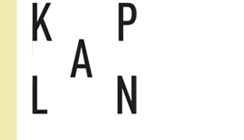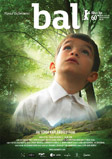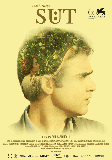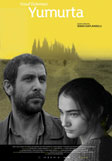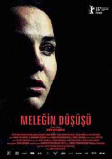24 March 2011
Filmcritic.com / Chris Cabin
Honey (2010)
The elemental curiosities and unpredictable rhythms of childhood have not been handled memorably by directors who tend towards the academic. To some, the long takes of swinging trees, dimly lit barns, and rural schoolhouses that populate Semih Kaplanoglu's Honey would certainly grow tiresome, as would the lack of a score, cultural totems, and popular politics. Furthermore, the childhood of the film's central figure, young Yusuf (Bora Altas), is not marred by any time-tested narrative tropes, unless you count the fact that he idolizes his beekeeper father (Erdal Besikçioglu) and has trouble speaking up in school.
Stripping Honey of any blatant relevance or dramatic structure might distance some viewers from the delights that are easily found in Kaplanoglu's film but it also puts due focus on more universal themes that might get lost in the noise, fart jokes, and cultural shuffle in a film like, say, Diary of a Wimpy Kid. Using natural lighting and exquisite framing, the Turkish director has fashioned a loving ode to the inherent strangeness of being a kid with only the bare minimum of a plot. Opening with a gorgeous sequence that proves parenthetical, the film stresses the very special bond built between Yusuf and his father, and indeed every scene they share seems to ripple with an unspoken intimacy and delicacy. When he's not in school, attempting to overcome a debilitating stutter, Yusuf can be found trotting behind his father as he collects honey from makeshift beehives around the local forests. A low yield sends the father away to set up his hives in a less populated area, leaving Yusuf alone for two days with his loving mother (Tülin Özen) who he seems incapable of connecting with in any way.
The relationship between Yusuf and his mother is not strained per se, but it has the natural fickleness that one might expect from a kid who often acts out in careless ways. In school, Yusuf steals a classmate's homework out of jealousy, thinking that the classmate received a present from Yusuf's father that our protagonist thought was his. These moments of more relatable social interactions and psychological underpinnings are balanced by quiet, remarkable scenes that merely observe the quotidian tempo of rural life in Turkey. In one beautiful shot, a mule's face finally finds the faintest patch of light while pacing behind Yusuf, who sits morosely on a bale of hay. Not many other animals figure into Yusuf's life -- chickens provide eggs for the family, a small hawk is kept as a pet -- but nature is an overwhelming, mysterious force seemingly ever-present on the film's soundtrack in cascades of rain and the rush of wind flowing through leaves and branches.
Tragedy befalls the family near the very end of the film, but dread and gloom do not figure into the overall tone of Honey. The final, though chronologically first, entry in Kaplanoglu's trilogy focusing on Yusuf's life, Honey is a film marked by its warmth and curiosity, and its notable lack of sentimentality. Essentially powered by Bora Altas's instinctual, largely silent performance, the film may be low on ambition, bordering on slight, but it has a uniquely honest outlook towards childhood. The only other recent film I can recall that treats the subject with such respect is So Yong-kim's timeless Treeless Mountain, and if Honey ultimately doesn't measure up to that masterpiece, it more than likely has to do with the fact that Altas has no one to explore and imagine with. Rather, his fascination with what we might find mundanely quotidian remains internalized, and we are given nothing but the lively eyes of young Yusuf to communicate the breathless wonder of discovery.
|
|
|
